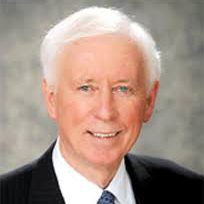German Minister of Health Daniel Bahr
Daniel Bahr, German Federal Minister of Health, addressed the opening ceremony of the German Medical Assembly in Hanover earlier this week. In a wide-ranging 53-minute speech he talked about issues confronting the German health care system; improvements that have been made, and his hopes for the future.
Minister Bahr stated that industry in Germany, specifically the auto industry, is not likely to grow significantly and that the engine of job creation in Germany is health care.
Challenges for the future include the demographics of an aging population, increasing costs particularly in outpatient care and doctor shortages. In addition increasingly funding of healthcare will compete with other societal priorities.
In describing improvements made by the current government he stated that new laws have decreased bureaucracy and red tape; the bane of physicians’ lives. A previously installed practice fee has been abolished. There has been improvement in early diagnosis of cancer, ambulance response times, hospital hygiene/safety and nursing home transparency. Pending patient rights legislation will improve mutual trust between patients and physicians.
For the future there is a need for more cooperation among health professionals including burden sharing and delegation of tasks. There is a need for more physicians in private practice. Young physicians are looking for something different and their needs must be accommodated. What are needed are work models compatible with family life including for example childcare facilities in hospitals. All this is needed to help achieve work-life balance.
He shared statistics that German patients are positive in their assessment of the medical profession. 87 per cent are happy with doctors and 99 percent say they have a good relationship with their doctor. Patients want to be informed. They expect responsibility from doctors. They want to be taken seriously and to be able to choose freely.
There is presently a debate in Germany about continuing the current dual health insurance system that includes the statutory national health insurance and private insurance. Minister Bahr spoke strongly for preserving a dual system. In his opinion a centralized system would not work. He said: “people are diverse. One size does not fit all. What is needed is fair competition, particularly between hospital outpatient care and practice-based care”.
Minister Bahr said what is needed for the German health care system is evolution not revolution. He warned against a system that is fraught with ideologies. Physicians’ ability to work for patients must be preserved. Ethical principals must be respected. Regulations are needed to seek out corruption.
Minister Bahr stated, “A good physician is not so much about grade point average but about empathy and caring”. In a humorous anecdote illustrating the high regard society has for physicians he stated that he occasionally visits hospitals dressed in scrubs; looking like a doctor. During those visits he is accorded more respect and deference than on other occasions where he is recognized as the German Health Minister.
Minister Bahr was well received by the members of the German Medical Association. I was encouraged by this public servant’s grasp of the essentials of health care systems and his understanding of what is needed – particularly as it relates to supporting an environment in which physicians can provide the best of care for patients. And, as is always the case in my travels to different countries around the world, I was impressed by the commonality of the challenges societies face in providing universal care for people.

